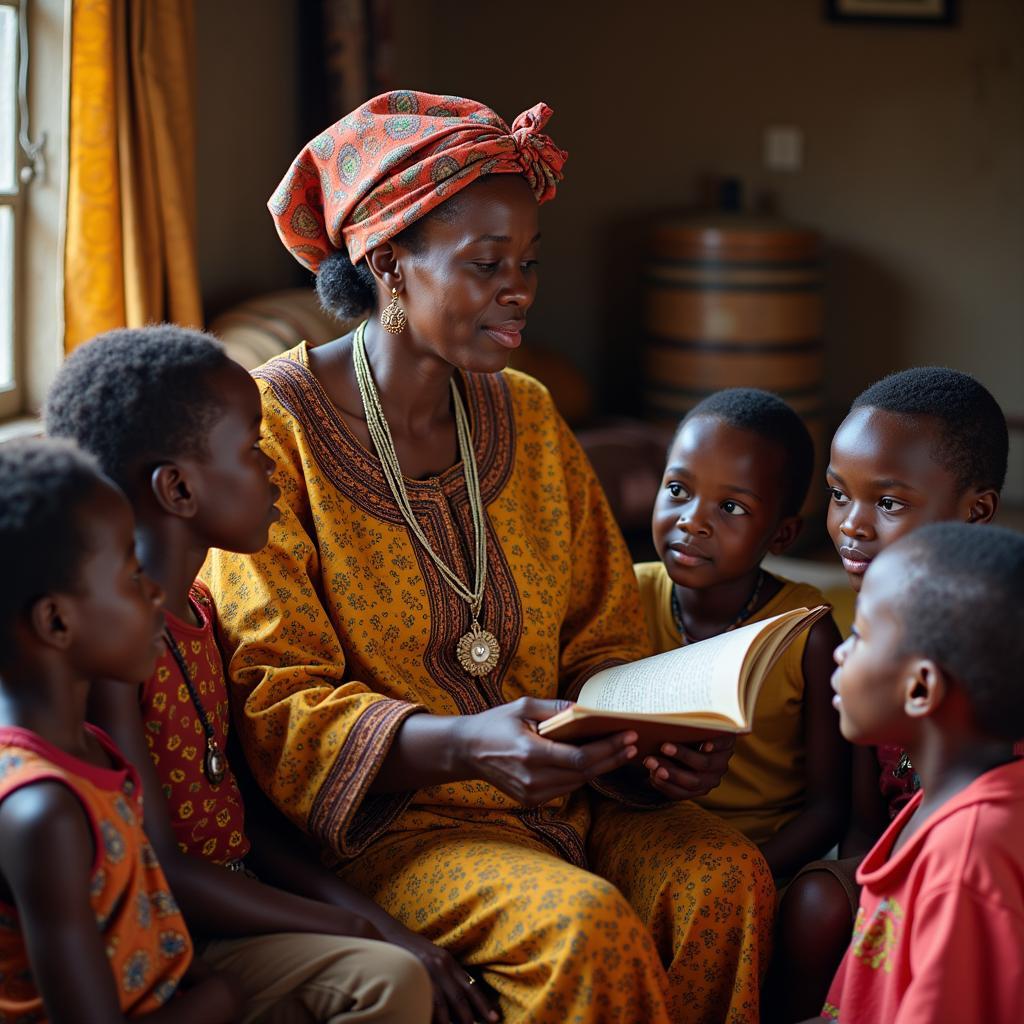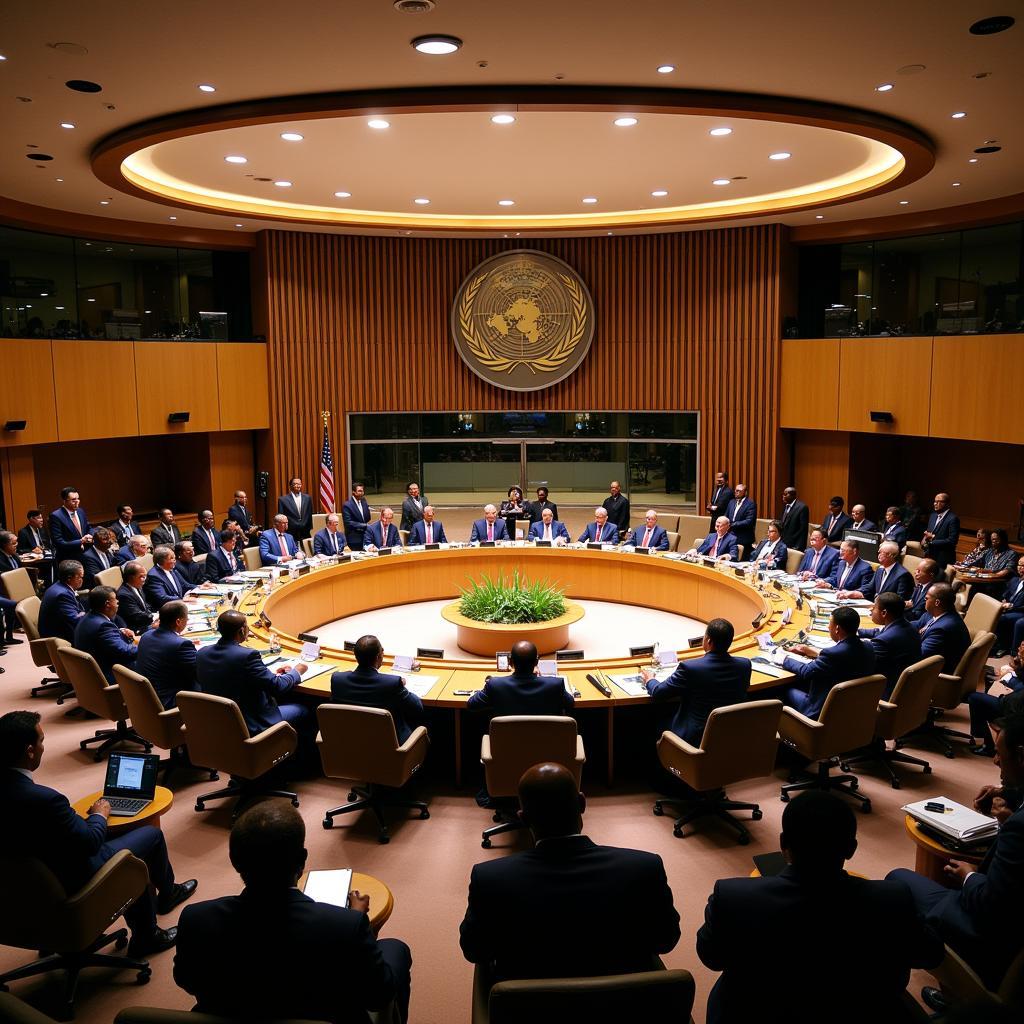The Winds of Change: Exploring African Independence Years
The mid-20th century witnessed a seismic shift in the global political landscape as numerous African nations broke free from the shackles of colonialism. This period, marked by “African Independence Years,” brought about a wave of liberation movements and the birth of new nations, forever altering the continent’s destiny.
A Continent Awakens: The Dawn of African Independence
The struggle for independence in Africa was a multifaceted phenomenon, fueled by a potent mix of internal resistance and external factors. World War II, with its devastating impact and the weakening of European powers, played a crucial role in accelerating the process. As colonial powers grappled with their own war-torn realities, African nationalist movements seized the opportunity to demand self-determination.
Pan-Africanism, a powerful ideological force advocating unity and solidarity among African people, provided a unifying vision for independence movements across the continent. Inspired by leaders like Kwame Nkrumah of Ghana and Jomo Kenyatta of Kenya, nations rose up to dismantle colonial structures and reclaim their sovereignty.
A Timeline of Freedom: Key African Independence Years
While the journey towards independence was unique for each nation, certain years stand out as pivotal moments in this historical epoch.
-
1957: Ghana, under the leadership of Kwame Nkrumah, becomes the first sub-Saharan African country to achieve independence, ushering in a new era for the continent.
-
1960: This year, often referred to as the “Year of Africa”, sees a remarkable 17 African nations gaining independence, most notably including Senegal, Mali, Côte d’Ivoire, and Nigeria.
-
1962: Algeria wins its independence from France after a protracted and bloody struggle, marking a turning point in the fight against colonialism.
-
1964: Several East African nations, including Tanzania (formed from the union of Tanganyika and Zanzibar) and Zambia, break free from British rule.
-
1975: Angola and Mozambique achieve independence from Portugal, while the end of the Vietnam War further weakens colonial powers globally.
These landmark years represent only a fraction of the numerous African nations that achieved independence during this period. Each country’s journey was marked by its own unique challenges, triumphs, and complexities.
Legacy of Liberation: Navigating the Post-Colonial Era
The achievement of independence was met with immense joy and hope, signaling the dawn of a new era for Africa. However, the transition from colonial rule to self-governance also came with its own set of challenges.
Many newly independent nations grappled with issues like establishing stable political systems, fostering economic development, and addressing social inequalities inherited from colonial rule. The legacy of colonialism, with its artificial borders and systems of exploitation, continued to cast a long shadow over the continent.
From Independence to Interdependence: Africa in the 21st Century
Despite the complexities of the post-colonial period, African nations have made significant strides in various fields. From advancements in education and healthcare to the rise of a vibrant cultural scene, Africa continues to assert its presence on the global stage.
The spirit of Pan-Africanism has also found renewed expression in regional integration efforts, such as the African Union, which seeks to foster cooperation and development across the continent.
Today, as we commemorate African independence years, it’s crucial to recognize both the triumphs and challenges that have shaped the continent’s trajectory. The quest for true liberation, encompassing not just political freedom but also economic justice and social equality, remains an ongoing journey.
FAQ:
-
What were the major factors contributing to African independence movements? A complex interplay of internal resistance, weakened European powers after WWII, and the rise of Pan-Africanism fueled these movements.
-
Why was 1960 called the “Year of Africa”? An unprecedented 17 African nations gained independence in that year alone, marking a turning point in the continent’s history.
-
Did all African countries achieve independence peacefully? While some transitions were relatively peaceful, others involved protracted and violent struggles against colonial powers.
-
What are some challenges faced by African nations post-independence? Establishing stable political systems, fostering economic growth, addressing social inequalities, and overcoming the legacy of colonialism have been ongoing challenges.
-
How is Pan-Africanism relevant today? The spirit of Pan-Africanism continues to drive regional integration efforts, like the African Union, fostering cooperation and development across the continent.
For more insightful articles on African history, culture, and current affairs, explore our website. If you need assistance, our team is available 24/7. Contact us at +255768904061, [email protected], or visit our office at Mbarali DC Mawindi, Kangaga, Tanzania.

